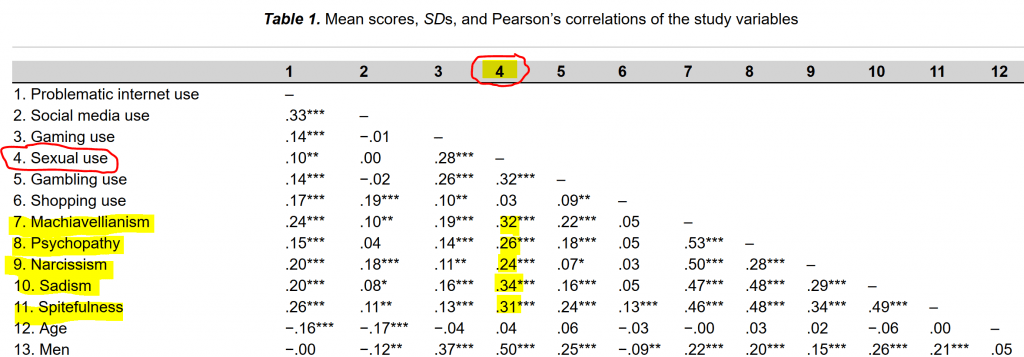Morality lies not where we think it does
This post is about morality, but not about a particular moral agenda. It’s about how your inner compass works. Whatever your moral code, if you or your loved ones occasionally do things that violate it, read on.
Moral decisions (including sexual ones) do not invoke a specific “moral sense” in the brain. They rely on a brain mechanism that influences all choices: our reward circuitry.
“Scientists at Harvard University have found that humans can make difficult moral decisions using the same brain circuits as those used in more mundane choices related to money and food.
These circuits, also found in other animals, put together two critical pieces of information: How good or bad are the things that might happen? What are the odds that they will happen, depending on one’s choice?”
The structures they studied are all components of the brain’s reward circuitry: ventral striatum, insula and vmPFC (pre-frontal cortex).
So, where’s the problem? The problem is that our genes have hidden agendas. Food and resources register as rewarding because they promote survival, but the most powerful rewards are for behaviors favoring more progeny, whatever the risks. Think of Karen Owen’s screw-’em-and-rate-’em behavior, or the escapades of Bill Clinton, Mark Sanford and John Edwards, Larry Craig’s bathroom antics and George Reker’s “rent boy” caper. Consider the fact that HIV cases in gay men under thirty have jumped more than thirty percent since 2001.
These folks have one thing in common: Their inner compasses aren’t functioning in accord with their long-term self-image, because a primitive brain mechanism assesses their risky activities as—believe it or not—genetic opportunities. “Selfish genes” indeed!
How do our genetic programs pull our strings? In this case, by releasing extra dopamine (the “gotta get it” neurochemical) in our reward circuitry. We don’t realize what’s going on because we’re used to relying on input from this circuitry as we make countless other, generally sound, decisions. So, when hit with extra dopamine, we just know we need to act on that impulse, and actively resist unwanted, more sober thoughts. Sneaky, eh? On the other hand, when dopamine (sensitivity) plummets, we may feel bored, or like we don’t want more of something (or someone)—or like we just made a huge mistake the night before.
Whether unusually high or low, we’re on a mini-drug trip or having a bit of a hangover. Either way, we’re laboring against chemically induced odds. Fortunately, the impulses pass—before or after we act—and clarity generally returns.
When moral-compass malfunction lingers
Some of us arrive on the planet with brains that make us more impulsive or prone to overvaluing novelty, thus skewing our compasses. However, it’s likely that most of us are susceptible to lingering compass malfunction (that is, distortion of limbic tone) in one circumstance: Engage in too much intense stimulation and another genetic program kicks in for a time: the binge program.
Let’s say you discover a racy online chat room or a titty bar. Surrounded by all those potential mates, your brain releases extra dopamine (“Yes!”), coloring your perceptions and often your judgment for a time. In fact, today’s opportunities to be turned-on by novel, hot potential mates, synthetic sexual stimuli and hyper-stimulating junk food register as so valuable to many brains that they automatically suppress their sensitivity to keep their owners seeking more goodies. Instead of feeling greater satisfaction, such folks often experience growing malaise (unless and until their brains reboot).
These subtle, but very real, brain changes occur without conscious awareness. To restore equilibrium and sound judgment, they need time without intense stimulation, (but, preferably, lots of affection or friendly interaction). Until they’re back to normal, even a beloved may look…unsatisfying. Said one man after lots of hot sex for two weeks in a new relationship,
I feel dumb for getting involved with a woman who wants a steady relationship. She is good woman. I like her, but when I interact with other women and the chemistry is there, it’s hard to ignore.
His reward circuitry is overvaluing the promise of intense stimulation (via novelty) because dopamine is surging in his numbed brain at the very thought. He feels a restless need to act.
Here’s the thing: Neither his cravings nor their consequences have much to do with his moral character. The culprit here is limbic tone. It can produce a fog of unsettling perception distortions, inner conflict, and self-doubts. We act without realizing we’re under a spell. When our neurochemistry shifts again, we wonder, “What was I thinking???” Answer: we weren’t; we were on neurochemical autopilot, or at least suffering from distorted perception that enabled us to rationalize reckless behavior.
Consider this exchange about how extreme sexual stimulation shifts perception even among solo porn users. (The issue here isn’t porn. It’s the shift in perception, which can happen after too much stimulation of any kind.)
First person: Porn takes you outside the norm of what you think sex should be. It takes you to “everything goes” land where it’s okay to abuse and hurt others and it doesn’t matter if love exists in the couple. In fact, the less love, the more depravity, the better! When you’re fully addicted you can see nearly ANYTHING happen on screen. Hell, I was happily watching urination, vomit, people hitting and abusing each other, people with disabilities being humiliated and mistreated, even people having trash dumped on them—all without even thinking about it. It was disgusting but I didn’t care. When my mind was in that “space,” anything went.
So after months of no porn, I clicked on some of the stuff I knew I had always liked, and just got this horrid feeling of, “WHAT THE HELL AM I WATCHING?” I was back to normal and I was seeing it as myself, with my rational and sane eyes…and it was completely disgusting. Porn wasn’t about what kind of sex I liked, it was about seeing intense, violent and exciting stuff when I was in that space.
Second person: Time passes, and the feelings of “No, not again!” become, “This is just who I am, I guess.” It would be good to alert new porn users to what may turn them on down the road. But only when they see how they change will they truly understand how morphed they become without realizing it. Getting off to someone getting vomit in their eyes and crying in pain as a scene keeps rolling can hit people’s minds harder than a strong mushroom trip. Naive people only realize life is not porn once they try the stuff they see. Hopefully as people hit their own walls, they will too take a step back and ask, “What have I become?”
I try not to dwell on what used to turn me on. It’s only when we realize how far we have deviated, that we see it isn’t a moral battle we fight when we withdraw from porn, but one for our minds and happiness. In a world that expects humans to act like robots most of the time, love is one of the few things people have left that can be a real experience of something magical. To everyone else, you are just a nameless face in a crowd, but to a lover you are the world. The choice is clear.
Yes, the choice is clear—when the brain’s dopamine response is given a chance to return to normal.
So, truly, external morality isn’t the best basis on which to judge anyone’s sexual choices. Our moral sense doesn’t operate apart from our reward circuitry. It decides what is “rewarding” or “not rewarding,” which has a huge impact on what we view as “appropriate” or “inappropriate,” and even “humane” or “inhumane.” So when extreme stimulation throws our limbic tone out of kilter temporarily, we’re at risk for regrettable choices. As one guy said:
My pleasure center totally takes over. It persuades the rational part of the brain that this will be my last time, that I need another hit of intense stimulation to get on with things. It’s like I have two people living inside me.
External rules of morality are easily ignored by brains struggling with dopamine imbalance. Conversely, when a brain is in balance, it doesn’t need artificial rules—because its owner is thinking clearly. Here are the comments of five men who have cut back on extreme stimulation:
- It’s amazing how much of a difference there is. I’m a lot less nervous, more coherent, confident, everything. It feels like my real personality can come out.
- I think more clearly, and act more efficiently and my focus LASTS. I can follow through, solve problems, even multiple things in a row for extended periods of time. Even my boss said that I seem much more in control.
- I feel MORE masculine, more in control, more stable, more ALIVE, and consequently, in a weird way, more ‘virile’…? I’m not sure how to explain it. It feels amazing.
- I have experienced clearer thinking, better social interactions, more emotional stability, more energy, and more wholeness. It is very nice to see results so quickly.
- I feel more grounded and more directed, have more to give to more people. The times I spend with my mate, I feel full and happy.
People are not bad people because they violate their moral codes under extreme, neurochemically-generated pressure. Many simply need to restore their equilibrium, so their compasses once again align with their true values. This recalibration can take weeks.
Avoiding extreme stimuli sustains (or restores) balance. This is why many of the world’s spiritual traditions focus on brain-balancing techniques such as meditation, qi gong, diet, devotion, prayer, service, questing, generosity and careful management of sexual desire. Add to that list daily, non-goal-oriented affection. Such tools can be surprisingly effective at keeping our inner compass aligned with who we really are.
Update: Endogenous fluctuations in the dopaminergic midbrain drive behavioral choice variability
Humans are surprisingly inconsistent in their behavior, often making different choices under identical conditions. … Here, we show that intrinsic prestimulus brain activity in the dopaminergic midbrain influences how we choose between risky and safe options. … Our findings demonstrate that higher-order cognition is influenced by fluctuations in internal brain states, providing a physiological basis for variability in complex human behavior.
Interesting study finds that sex is different from other stimuli
Researchers looked at various types of problematic internet use and discovered that using the internet for sexual purposes correlated most strongly with the “dark” personality traits of Machiavellianism, Psychopathy, Narcissism, Sadism and Spitefulness. From “Preliminary evidence for the associations of dark personality traits with specific online activities and problematic internet use.”

Also of possible interest:
This is not just an issue for men. Sexual Coercion by Women: The Influence of Pornography and Narcissistic and Histrionic Personality Disorder Traits
Engage[ment] with pornography was a significant individual predictor of … emotional manipulation and deception.
Also see: Associations between the dark triad of personality and unspecified/specific forms of Internet-use disorder, and The role of gender in the relations among Dark Triad and psychopathy, sociosexuality, and moral judgments
Sexual violence remains a prevalent issue on college campuses. Sexual coercion, a form of sexual violence, is frequently employed within casual sexual encounters (i.e., hookups). The present study investigated hypersexuality and sexual narcissism as unique predictors of sexual coercion and examined whether there were gender differences in these associations. … Compared to women, men scored higher on sexual exploitation and all hypersexuality subscales. After establishing good-fitting measurement models, we found that both sexual narcissism and hypersexuality predicted increased sexual coercion perpetration and that gender did not moderate these associations. Study findings demonstrated that sexual narcissism and hypersexuality are risk factors for sexual coercion perpetration in hookups across gender.
[In addition to some differences, both boys and girls who engaged in porn and online sexual activities were more neurotic, less agreeable, more narcissist, and had less conscientious judgement.]
- Watching Pornography Alone or Together: Longitudinal Associations With Romantic Relationship Quality
Both watching [porn] alone and watching together were related to higher levels of psychological aggression between partners, with few differences by gender. …
Longitudinal associations suggest that adding or increasing pornography viewing is, for at least some couples, either contentious in and of itself or otherwise fosters increases in psychological aggression. Furthermore, average levels of watching together were related to physical aggression victimization, regardless of gender…..
These data were collected between 2007 and 2010, before smartphones and wireless Internet became ubiquitous features of daily life.
We find a positive correlation between viewing pornography and intended unethical behavior.
Related lay article: Viewing Pornography Increases Unethical Behavior, According to New Research
After accounting for psychiatric symptomology and substance use and problems, results revealed a positive association between [problematic porn use] and both physical and sexual [inter-partner violence] perpetration.
In two studies exposure to visual sexual stimuli resulted in: 1) greater delayed discounting (inability to delay gratification), 2) greater inclination to engage in cyber-deliquency, 3) greater inclination to purchase counterfeit goods & hack someone’s Facebook account. Taken together this indicates that porn use increases impulsivity and may reduce certain executive functions (self-control, judgment, foreseeing consequences, impulse control). Excerpt:
These findings provide insight into a strategy for reducing men’s involvement in cyber delinquency; that is, through less exposure to sexual stimuli and promotion of delayed gratification. The current results suggest that the high availability of sexual stimuli in cyberspace may be more closely associated with men’s cyber-delinquent behavior than previously thought….
These results have important practical implications, as decreasing exposure to sexual stimuli and the tendency to discount the future can reduce the propensity toward criminality among men. The mediation analysis suggested that sexual primes may engender a ‘‘short-sighted’’ self state in men, which leads to them yielding to short-term gains while failing to consider the long-term costs of delinquent behavior….
Men may benefit from monitoring whether exposure to sexual stimuli is associated with their subsequent delinquent choices and behavior.
Men take more risk after having been exposed to images of half-dressed women compared to no women.
- Science Offers Another Reason to Stay Away From Porn
- Dopamine Modulates Egalitarian Behavior In Humans
- Brain circuit that controls decisions that induce high anxiety identified
- How Porn Erodes Your Moral Compass — Even If You Don’t Watch It
- Probability and delay discounting of erotic stimuli (2008)
Erotica users were disproportionately male, scored higher on several psychometric measures of sexuality-related constructs, and exhibited more impulsive choice patterns on the delay discounting for money task than erotica non-users did. These findings suggest that discounting processes generalize to erotic outcomes for some individuals.
We show that exposure to sexy cues leads to more impatience in intertemporal choice between monetary rewards. Highlighting the role of a general reward circuitry, we demonstrate that individuals with a sensitive reward system are more susceptible to the effect of sex cues, that the effect generalizes to nonmonetary rewards, and that satiation attenuates the effect.
- High moral reasoning associated with increased activity in the human brain’s reward system (2017)
- (This was interesting too.) Appetite for destruction: Counterintuitive effects of attractive faces on people’s food choices
Exposure to attractive (vs. unattractive) opposite‐sex faces increased choice likelihood of unhealthy foods.
______________
Links between addiction and “moral” reasoning deficits (and changes in related brain structures) show up in those who have had gambling and substance use histories too.
Greater levels of psychopathology, as well as earlier GD onset, longer GD duration and greater GD severity were also associated with the presence of criminal behaviors.
These results suggest a dynamic pattern of fronto-limbic moral processing related to stimulant use with deficits in both central motive and cognitive integration elements of biological moral processes theory.
Growing scientific evidence of a lingering post-orgasm cycle (studies)
Studies on the overlap between sex and drugs in the brain
Studies Find Escalation (and Habituation) in Porn Users (2016)
Researchers say testosterone unlikely to be the sole key to understanding morality (2019) (We couldn’t agree more.)

